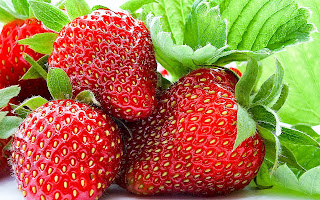Food addiction is a real thing. The concept has been discussed since the late 1800s but recently doctors and food scientists have begun to take it much more seriously. More and more studies are concluding that certain patterns of food consumption mirror the behaviors associated with drug and alcohol addiction.
Specialists will diagnose addiction when someone's use of a substance or a behavior is negatively impacting their life and is beyond their ability to control. On a biological level, brain circuits that process the release of dopamine are overstimulated and those responsible for self-control are suppressed. This makes it almost impossible to stop the behavior, even after is is causing significant problems for the addict.
People do not become addicted to food in general - we need it to survive after all - but rather to highly processed and enhanced foods like chips, sugary snacks, and foods high in refined carbohydrates and fats and low in protein and fiber. In other words, processed foods.
Food addiction affects both men and women but women seem to be more susceptible, with middle aged women especially vulnerable. It seems to run in families, most likely reflecting a environmental component as well as a biological one. Americans are said to live in a "toxic" food environment, and food addiction is more common in the US than anywhere else. Cheap, nutrition-free foods are available everywhere and advertised relentlessly.
The fact is that in the US many foods are deliberately and specifically designed to be addictive. A good book on the topic is "The Hacking of the American Mind" by Dr. Robert Lustig. Major food companies invest heavily in ways to produce products that have precisely the effect on the brain that leads to compulsive addiction. The increased risk of heart disease, cancer, diabetes and obesity that their products cause do not seem to concern them much.
If you are concerned about your food consumption or if it already is a problem for you, there are some steps that you can take to address it.
Substitute less addictive foods that you enjoy for the problematic ones. Fruits, nuts and popcorn make good snacks. Substitute hummus for other dips. Experiment with foods you are unfamiliar with to find new ones that you enjoy. It won't work if it is about deprivation.
Don't try to compensate by skipping meals or depriving yourself today to make up for yesterday, it will backfire on you. Eat regular meals and have healthy snacks out where you can see them.
Be alert for the situations or stresses that trigger the urge to eat. Find something else to change your focus to like going for a walk or starting a task or chore. Even the most intense cravings will often subside quickly if you can distract yourself.
If you have tried breaking your eating patterns on your own and not been successful, you can consider professional help or a support group. Speak with your primary care provider or seek out a therapist who practices Cognitive Behavioral Therapy. CBT is very effective in treating addictions. Or try a 12-step program like Overeaters Anonymous. Maybe all you need is the support of others who are dealing with the same problem.
One thing you should not do is blame yourself or feel shamed or guilty. First of all it is no help. And more importantly, it is not your fault. Remember, companies deliberately spend million of dollars to develop and produce addictive foods and than made it cheap and easy for you to get them. If you want to blame someone, blame them.

















